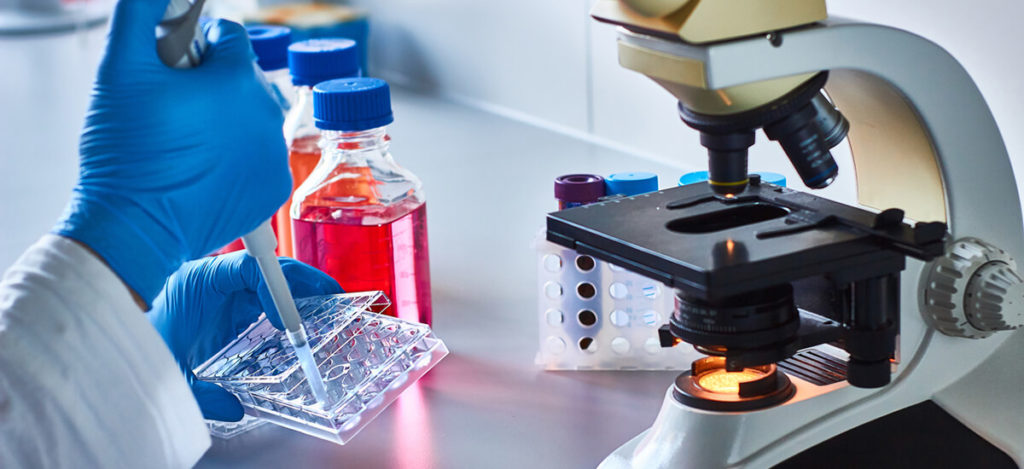This protocol offers diagnosis and standard medical treatment for various parasitic gastrointestinal infections. Gastrointestinal parasites are either worms (helminths) or one-celled animals called protozoans which live in the human intestines. Often, parasitic infections do not cause illness. In these cases, drug treatment is not indicated, because treatment can have adverse side effects. Patients will be examined for their immune responses, correlation between the number of parasites and disease, and other studies.
Individuals with known or suspected parasitic diseases of the gastrointestinal tract, including amebiasis, giardiasis, hookworm, strongyloidiasis, tricuriasis, pinworm, tapeworm, trichinosis, clonorchis, opisthorchis, coccidiosis, paragonimiasis, and echinococcus may be eligible for this study.
Patient evaluations may include blood and urine tests, stool examination, X-rays, ultrasound studies and, uncommonly, duodenal aspiration for examination of fluid from the duodenum (first part of the small intestine). Other tests may be required, depending on the parasite and disease. Direct examination of the tissues of the intestines may be required to rule out certain infections.
Research procedures include collection of stool, blood and duodenal fluid when the diagnosis has been established and these procedures are not required for medical care. Patients with strongyloidiasis may also be given a diagnostic skin test similar to skin tests for tuberculosis and allergies. Research procedures on children will be limited to collection of stool, urine and blood. No more than 7 milliliters (1 1/2 teaspoons) per kilogram (2.2 pounds) body weight of blood will be collected in children over a 6-week period. In adults no more than 30 tablespoons of blood will be collected in a 6-week period.
Parasites may fail to respond to treatment. In these cases, it may be necessary to grow the parasite in the laboratory in order to test treatments in the test tube. Patients who do not respond to standard medications and dosing may need different doses of drugs or drugs or combinations of drugs used in the United States for other medical problems. If these medications or doses are used, patients will be informed of their possible side effects.
This protocol offers diagnosis and standard medical treatment for various parasitic gastrointestinal infections. Gastrointestinal parasites are either worms (helminths) or one-celled animals called protozoans which live in the human intestines. Often, parasitic infections do not cause illness. In these cases, drug treatment is not indicated, because treatment can have adverse side effects. Patients will be examined for their immune responses, correlation between the number of parasites and disease, and other studies. Individuals with known or suspected parasitic diseases of the gastrointestinal tract, including amebiasis, giardiasis, hookworm, strongyloidiasis, tricuriasis, pinworm, tapeworm, trichinosis, clonorchis, opisthorchis, coccidiosis, paragonimiasis, and echinococcus may be eligible for this study. Patient evaluations may include blood and urine tests, stool examination, X-rays, ultrasound studies and, uncommonly, duodenal aspiration for examination of fluid from the duodenum (first part of the small intestine). Other tests may be required, depending on the parasite and disease. Direct examination of the tissues of the intestines may be required to rule out certain infections. Research procedures include collection of stool, blood and duodenal fluid when the diagnosis has been established and these procedures are not required for medical care. Patients with strongyloidiasis may also be given a diagnostic skin test similar to skin tests for tuberculosis and allergies. Research procedures on children will be limited to collection of stool, urine and blood. No more than 7 milliliters (1 1/2 teaspoons) per kilogram (2.2 pounds) body weight of blood will be collected in children over a 6-week period. In adults no more than 30 tablespoons of blood will be collected in a 6-week period. Parasites may fail to respond to treatment. In these cases, it may be necessary to grow the parasite in the laboratory in order to test treatments in the test tube. Patients who do not respond to standard medications and dosing may need different doses of drugs or drugs or combinations of drugs used in the United States for other medical problems. If these medications or doses are used, patients will be informed of their possible side effects. Condition: – Amebiasis- Cryptosporidiosis- Giardiasis- Parasitic Disease- Parasitic Intestinal Disease Study Type: ObservationalStudy Design: Natural History Official Title: Study of Patients with Parasitic Infections of the Gastrointestinal TractFurther Study Details: The precis of this protocol is to allow the evaluation, treatment and study of patients with a variety of gastrointestinal parasites. The treatment and evaluation will usually consist of the normal and usual medical care. However, these patients allow the study of different parasite populations, analysis of the immune responses of the host, a correlation between parasite burden in the host and disease, a source of reagents such as eosinophils, serum, saliva or colostrum and other studies. For patients with giardiasis resistant to standard therapies, other experimental chemotherapeutic agents are employed in an effort to find more effective experimental regimens. Eligibility Genders Eligible for Study: Both Criteria INCLUSION CRITERIA:The study population is to consist of referred patients, both male and female, with proven or suspected parasitic diseases, most commonly amebiasis, giardiasis, hookworm, strongyloidiasis, tricuriasis, pinworm, tapeworm and trichinosis.Other infections that may be encountered that will be included are certain diseases caused by gastrointestinal trematodes such as clonorchis and opisthorchis, coccidiosis, paragonimiasis and echinococcus.Young children will not be specifically excluded but will be evaluated and treated as medically indicated.Expected Total Enrollment: 200 [1] National Institute of Allergy and Infectious Diseases (NIAID), 9000 Rockville Pike, Bethesda, Maryland,
All content and media on the HealthEngine Blog is created and published online for informational purposes only. It is not intended to be a substitute for professional medical advice and should not be relied on as health or personal advice. Always seek the guidance of your doctor or other qualified health professional with any questions you may have regarding your health or a medical condition. Never disregard the advice of a medical professional, or delay in seeking it because of something you have read on this Website. If you think you may have a medical emergency, call your doctor, go to the nearest hospital emergency department, or call the emergency services immediately.







